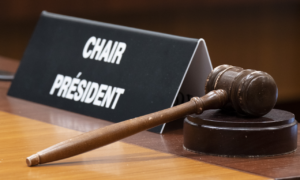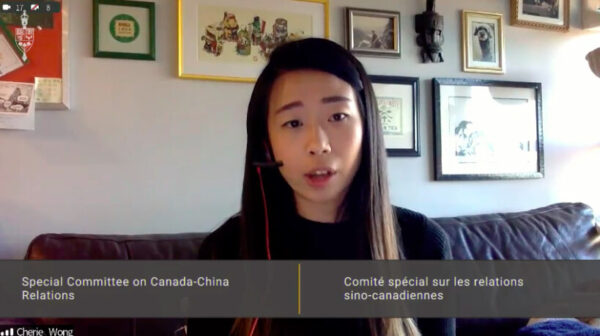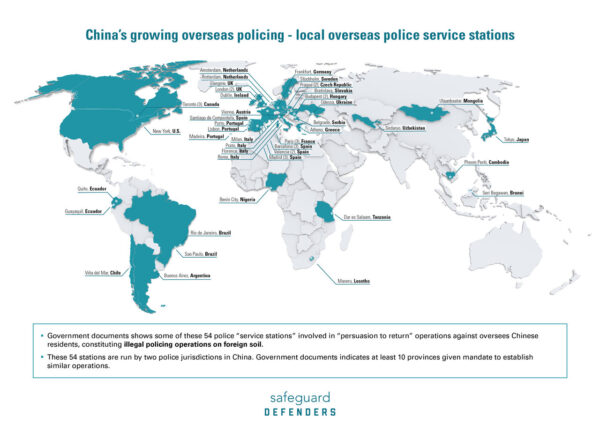House Committee Recommends Foreign Agent Registry Amid Concerns of Chinese Interference in Canada
Amid China’s increased assertiveness in global affairs and reports of its interference in the domestic affairs of Canada and other countries, a House of Commons committee report is putting additional pressure on the government to create a foreign agent registry to address the threat. The report, published May 17, was released in response to Beijing’s “increasingly assertive stance in global affairs, along with its intrusions in the domestic matters of other nations,” which have prompted many countries to reevaluate their relationship and policies toward the regime, the Special Committee on the Canada–People’s Republic of China Relationship (CACN) said in a news release. Titled “A Threat to Canadian Sovereignty: National Security Dimensions of the Canada–People’s Republic of China Relationship, the report “addresses key national security topics, including the safeguarding of Canadians from foreign interference, preventing threats to Canada’s democratic institutions and elections, defending intellectual property and research, enhancing cybersecurity, combating organized crime and money laundering, addressing global health governance threats, and scrutinizing the PRC’s intentions in the Arctic.” The committee put forward a set of 34 recommendations, including one that highlights the need for a foreign agent registry. Such a registry, which would aim to counter foreign interference by enhancing transparency in Canada’s dealings with foreign actors, would require individuals and entities to publicly declare any contracts or remuneration with a hostile state, or any entity affiliated with that hostile state, as determined by the federal government. Witnesses who testified before the committee have emphasized the potential benefits of a foreign agent registry, the report said. Cherie Wong, executive director of Alliance Canada Hong Kong, said increased transparency provided by such a registry would enable the public, businesses, school boards, and MPs to make informed decisions about partnerships, particularly during election campaigns, where it could help identify potential foreign actors among volunteers. “Canadians don’t really understand foreign state actors and don’t really know who they are,” Wong testified before CACN on May 31, 2021. “This is why we need a transparency scheme: to point out who they are, to point out these organizations who are receiving funding from state actors. After knowing that information, Canadians can make informed decisions.” Cherie Wong, executive director of the Alliance Canada Hong Kong, testifies before the House of Commons Committee on Canada–China Relations on May 31, 2021. (parlvu.parl.gc.ca/Screenshot via The Epoch Times) Notably, the requirement that individuals declare their affiliations with hostile states to the foreign agent registry would also apply to former public office holders, the committee recommended. This recommendation coincides with recent testimony from Christian Leuprecht, a professor at the Royal Military College of Canada, who told MPs that “elite capture,” particularly by China, is a “significant challenge” for Canada. Elite capture refers to the practice of corrupting or favouring a small group of influential individuals in key political, academic, business, or cultural positions, enabling control over their actions and decisions. “Elite capture by China, both by pecuniary interests as well as companies and law firms that are related to elite capture … I believe this is the major reason for significant resistance and active lobbying against a foreign agent registry that has been proposed,” he testified at the House of Commons Standing Committee on Procedure and House Affairs meeting on May 11. Interference There have been mounting calls for Ottawa to establish a foreign agent registry, after a number of news reports in recent months revealed the Chinese Communist Party’s (CCP) comprehensive interference operation in Canada, including but not limited to its attempts to meddle in the 2019 and 2021 federal elections. A Global News report published in November 2022 said intelligence officials had warned Prime Minister Justin Trudeau and several cabinet ministers that the CCP’s interference includes giving “covert funding” to at least 11 candidates in the 2019 federal election. A Globe and Mail article, citing top-secret documents from the Canadian Security Intelligence Service, also showed China’s attempt to influence the outcome of the 2021 federal race to ensure the return of the Liberals and the defeat of certain Conservative candidates that Beijing deemed unfriendly to China. Map of the 30 countries where Chinese police have established 54 known “110 Chinese overseas police stations.” (Courtesy of Safeguard Defenders) Media reports also revealed the CCP’s infiltration in Canada includes the creation of several secret police stations, the violation of Canadian territories with surveillance balloons and spy buoys, and its spying on and i

Amid China’s increased assertiveness in global affairs and reports of its interference in the domestic affairs of Canada and other countries, a House of Commons committee report is putting additional pressure on the government to create a foreign agent registry to address the threat.
The report, published May 17, was released in response to Beijing’s “increasingly assertive stance in global affairs, along with its intrusions in the domestic matters of other nations,” which have prompted many countries to reevaluate their relationship and policies toward the regime, the Special Committee on the Canada–People’s Republic of China Relationship (CACN) said in a news release.
Titled “A Threat to Canadian Sovereignty: National Security Dimensions of the Canada–People’s Republic of China Relationship, the report “addresses key national security topics, including the safeguarding of Canadians from foreign interference, preventing threats to Canada’s democratic institutions and elections, defending intellectual property and research, enhancing cybersecurity, combating organized crime and money laundering, addressing global health governance threats, and scrutinizing the PRC’s intentions in the Arctic.”
The committee put forward a set of 34 recommendations, including one that highlights the need for a foreign agent registry. Such a registry, which would aim to counter foreign interference by enhancing transparency in Canada’s dealings with foreign actors, would require individuals and entities to publicly declare any contracts or remuneration with a hostile state, or any entity affiliated with that hostile state, as determined by the federal government.
Witnesses who testified before the committee have emphasized the potential benefits of a foreign agent registry, the report said.
Cherie Wong, executive director of Alliance Canada Hong Kong, said increased transparency provided by such a registry would enable the public, businesses, school boards, and MPs to make informed decisions about partnerships, particularly during election campaigns, where it could help identify potential foreign actors among volunteers.
“Canadians don’t really understand foreign state actors and don’t really know who they are,” Wong testified before CACN on May 31, 2021. “This is why we need a transparency scheme: to point out who they are, to point out these organizations who are receiving funding from state actors. After knowing that information, Canadians can make informed decisions.”

Notably, the requirement that individuals declare their affiliations with hostile states to the foreign agent registry would also apply to former public office holders, the committee recommended.
This recommendation coincides with recent testimony from Christian Leuprecht, a professor at the Royal Military College of Canada, who told MPs that “elite capture,” particularly by China, is a “significant challenge” for Canada. Elite capture refers to the practice of corrupting or favouring a small group of influential individuals in key political, academic, business, or cultural positions, enabling control over their actions and decisions.
“Elite capture by China, both by pecuniary interests as well as companies and law firms that are related to elite capture … I believe this is the major reason for significant resistance and active lobbying against a foreign agent registry that has been proposed,” he testified at the House of Commons Standing Committee on Procedure and House Affairs meeting on May 11.
Interference
There have been mounting calls for Ottawa to establish a foreign agent registry, after a number of news reports in recent months revealed the Chinese Communist Party’s (CCP) comprehensive interference operation in Canada, including but not limited to its attempts to meddle in the 2019 and 2021 federal elections.
A Global News report published in November 2022 said intelligence officials had warned Prime Minister Justin Trudeau and several cabinet ministers that the CCP’s interference includes giving “covert funding” to at least 11 candidates in the 2019 federal election. A Globe and Mail article, citing top-secret documents from the Canadian Security Intelligence Service, also showed China’s attempt to influence the outcome of the 2021 federal race to ensure the return of the Liberals and the defeat of certain Conservative candidates that Beijing deemed unfriendly to China.

Media reports also revealed the CCP’s infiltration in Canada includes the creation of several secret police stations, the violation of Canadian territories with surveillance balloons and spy buoys, and its spying on and intimidation of Chinese Canadians, Falun Gong adherents, Uyghurs, rights advocates, and Chinese dissidents.
Concerns about the CCP ramped up after the Globe reported that a Chinese diplomat, Zhao Wei, threatened Tory MP Michael Chong’s family over introducing a motion condemning the regime’s oppression of Uyghurs. Foreign Affairs Minister Melanie Joly subsequently declared Zhao persona non grata, which Beijing retaliated against by expelling Jennifer Lynn Lalonde, consul in the Canadian consulate in Shanghai.
A survey conducted by Nanos Research last December shows that nearly 90 percent of Canadians support the creation of a registry of foreign agents.
Policies Adopted by Allies
Some of Canada’s allies, such as the United States and Australia, have established foreign agent registries.












